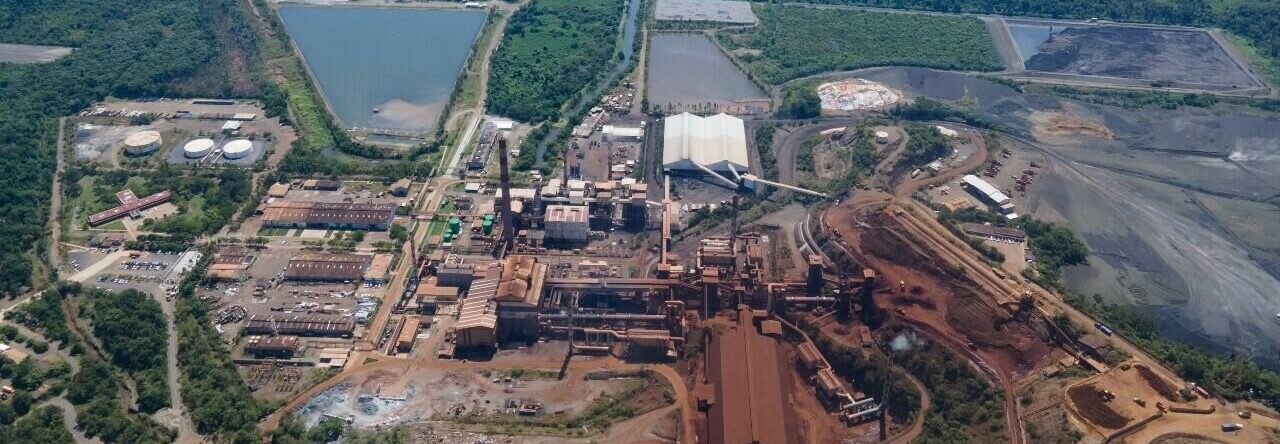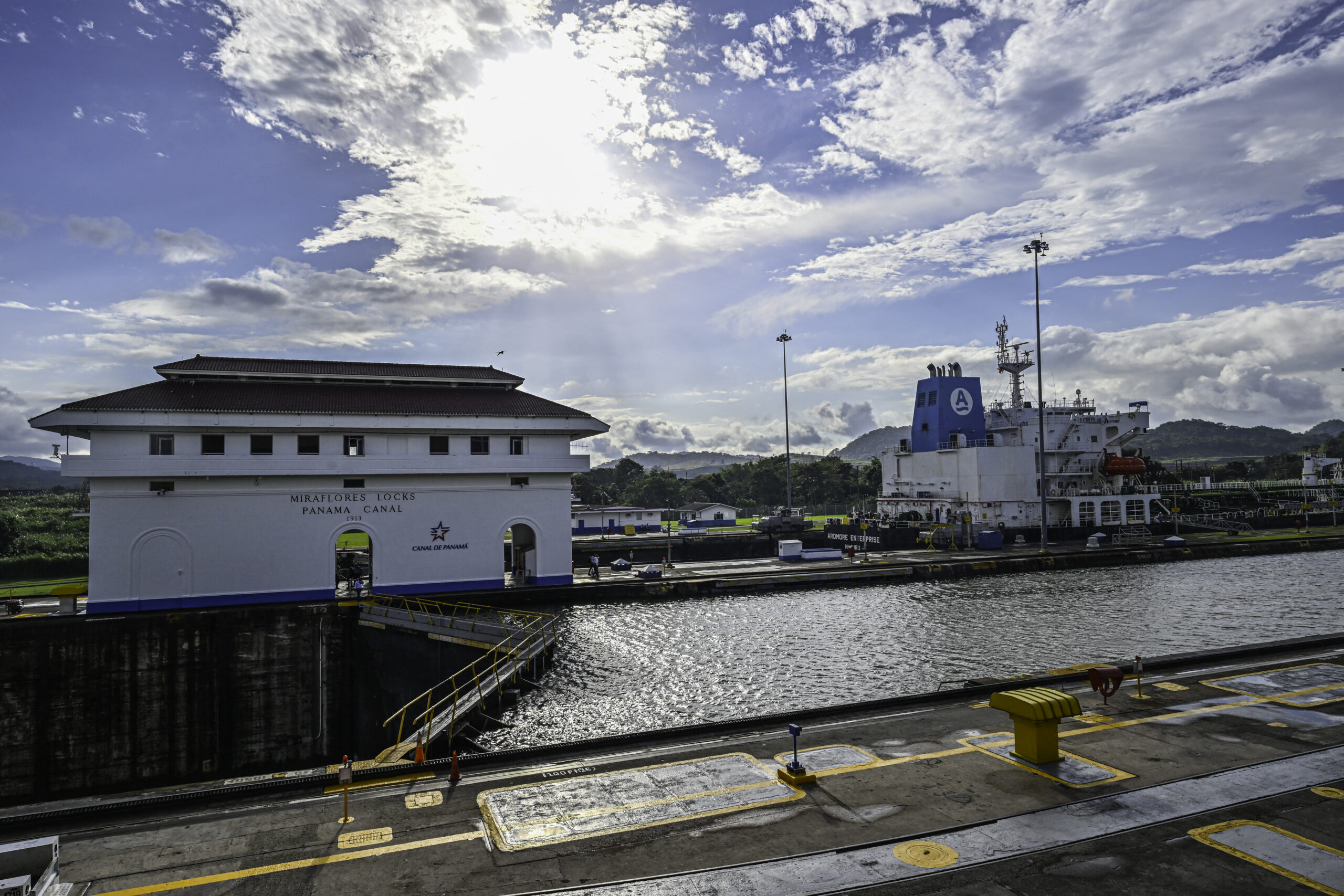Central America
Guatemalan town locked in battle against nickel mine

AFP
The inhabitants of El Estor, a town of mostly indigenous Mayans in eastern Guatemala, are living under a “state of siege”, watched over by armed soldiers after their years-long fight against a nickel mine took an ominous turn.
El Estor’s subsistence fishermen, mainly of the Mayan Q’eqchi’ indigenous group, say the Fenix mine is polluting Lake Izabal, diminishing stocks of fish that were abundant just a generation ago.
The mine’s owners deny the allegation, saying adequate environmental protections are in place.
Frustrated, residents mounted a protest against the mine on Sunday that was put down by security forces using tear gas.
The confrontation left four police officers wounded, and resulted in the government declaring a state of siege, complete with a month-long protest ban and a night curfew enforced by 1,000 police officers and soldiers deployed among the community of 100,000 people.
For three weeks before Sunday’s clashes, residents of El Estor had blocked truck access to the mine operated by the Guatemalan Nickel Company (CGN), a subsidiary of the Swiss-based Solway Investment Group.
“This company is bringing us death,” said Cristobal Pop, 44, a fisherman and protest leader who told AFP he will not be deterred by what he sees as the government’s “intimidation” measures.
“I have four children and they will bear the brunt” of the nickel mining operation, he said.
“My children’s future depends on me.”
– Fewer fish, more jobs –
Pop said that when he was a child, Lake Izabal — Guatemala’s largest — was replete with fish.
He says numbers have dwindled since the Fenix mine resumed nickel extraction and processing in 2014.
In 2017, a red slick spread over the lake, which the community blamed on mining pollution.
In resulting protests, Pop was imprisoned and his comrade Carlos Maaz shot dead.
This month, the community resumed demonstrations, accusing CGN of continuing to mine at Fenix despite a 2019 Constitutional Court order for it to suspend operations.
The court ruled in favor of local communities, who said they had not been consulted about the opening of the mine or its effects on them.
The government was ordered to open fresh consultations, but the people of El Estor say they are being excluded.
For its part, Solway said in a statement Sunday it was adhering to the court order. Extraction at Fenix has stopped, it said, but its processing plant was not affected by the ruling and continues to operate.
The company insisted it was doing all it can to minimize the environmental impact of its activities, investing in social infrastructure, and that its El Estor operations provided jobs for more than 1,900 people “and hundreds of local contractors.”
– A community divided –
Guatemala, Central America’s largest economy, exported 56 million kilograms (123 million pounds) of ferroalloys and ferronickel, mainly to China, in 2019, according to World Bank data.
Guatemala’s earnings from the metal grew from $10 million in 2018 to $54 million last year, and this year had already reached $62 million by August, according to Central Bank figures.
El Estor resident Abelino Chub told AFP the Fenix mine was dividing the community.
“Unfortunately, the pro-mining group only sees the money… but not the level of damage that this company is generating,” he said.
At the CGN headquarters, company president Dmitry Kudryakov told AFP the contamination allegations amounted to mere “speculation.”
He insisted the company adhered to international environmental standards, and said the 2017 red stain was a result of bacteria caused by sewage and fertilizer pollution of the Polochic River that flows into the lake.
Central America
Panama Canal Monitoring Trade as Middle East Conflict Disrupts Shipping

The Panama Canal Authority (ACP) said Monday it is closely monitoring global maritime trade developments following the conflict triggered by joint U.S. and Israeli strikes against Iran.
However, the ACP described it as “premature” to predict potential consequences for vessel traffic through the interoceanic waterway, which handles roughly 5% of global maritime trade.
“The Panama Canal continuously monitors the evolution of international maritime trade and the dynamics that may influence its flows,” the authority said in a statement. The canal’s main users are the United States and China, connecting primarily the U.S. East Coast with Asia, including South Korea and Japan.
The ACP emphasized that the canal “continues to operate safely, efficiently, and reliably,” providing uninterrupted service to the global maritime community.
Global Shipping Disruptions
The U.S.-Israeli military operation against Iran and Tehran’s retaliatory actions have disrupted global maritime traffic, particularly oil tanker routes.
Shipping giants Maersk and CMA CGM have suspended transits through the Strait of Hormuz as well as crossings via the Suez Canal, the key route linking the Mediterranean Sea and the Red Sea.
As a result, cargo vessels are now rerouting around Africa to reach Europe from the Middle East and Asia — a detour that adds several thousand kilometers and several days to voyages.
Central America
Washington Imposes Visa Ban on La Modelo Director Amid Crackdown in Nicaragua

The United States government announced Wednesday that it has imposed visa restrictions on Roberto Clemente Guevara Gómez, director of Nicaragua’s largest prison, La Modelo, for his involvement in actions that violate human rights.
In a statement, U.S. Secretary of State Marco Rubio said the measure is intended to promote accountability for abuses committed under what he described as the “Murillo-Ortega dictatorship” against political prisoners.
Rubio specified that Guevara Gómez was designated for participating in “a gross violation of the human rights of a political prisoner.” The sanction was issued under the 2024 Department of State, Foreign Operations, and Related Programs Appropriations Act, which bars the sanctioned individual — and potentially immediate family members — from entering the United States.
“United States demands the immediate and unconditional release of all political prisoners unjustly detained in Nicaragua,” the statement added.
Ongoing tensions between Washington and Managua
Washington rejected Nicaragua’s November 2021 elections, in which President Daniel Ortega and his wife, now co-president Rosario Murillo, were reelected while seven potential challengers were in prison.
Relations between the two countries remain tense amid expanding U.S. sanctions and increasing diplomatic pressure on the Nicaraguan government.
On January 10, marking Ortega’s 19 years in power, Nicaragua released “dozens of detainees,” including political prisoners. The move came one day after the U.S. Embassy in Managua stated that “more than 60 people” remain “unjustly detained or disappeared” in the Central American nation.
U.S. officials have continued to push for the “unconditional release” of political prisoners rather than selective or temporary releases.
Ortega, 80, governs alongside Murillo with consolidated authority, having strengthened executive power through constitutional reforms and security measures, while the opposition has been weakened by imprisonment, exile, and the revocation of citizenship and property rights.
Central America
Guatemala’s Attorney General Consuelo Porras Loses Bid for Constitutional Court Seat

Guatemala’s attorney general, Consuelo Porras, who has been sanctioned by the United States over corruption allegations, lost a key vote on Monday in which a public university selected two of the 10 magistrates for the country’s highest constitutional court. However, she could still seek a seat through another nominating body.
The election of five full magistrates and five alternates to the Corte de Constitucionalidad (CC) is taking place gradually over more than two months and is considered crucial in the ongoing struggle for control of Guatemala’s judiciary, which critics say has long been influenced by a political and economic elite accused of corruption.
According to results announced at a press conference, the governing council of the Universidad de San Carlos de Guatemala (USAC) rejected Porras, who had applied as either a full or alternate magistrate, and instead chose two candidates aligned with the university rector. The vote was held at a hotel in Antigua, about 35 kilometers from the capital.
Despite the setback, Porras — whose term as attorney general ends on May 16 — could still be nominated to the Constitutional Court by the Corte Suprema de Justicia, which appoints two magistrates. The remaining six are selected by the president, the bar association and Congress.
“It’s always a possibility,” the 72-year-old lawyer said days earlier when asked by reporters whether she would seek nomination through another institution if she lost the USAC vote.
Porras has been sanctioned by Washington and the European Union for allegedly attempting two years ago to block the inauguration of President Bernardo Arévalo and for pursuing legal actions against anti-corruption prosecutors, judges, journalists and social leaders since taking office in 2018.
The USAC vote was controversial because most members of the university’s governing council are serving beyond the expiration of their terms. Students, academics and social activists staged protests against Porras’ candidacy.
-

 International2 days ago
International2 days agoIran Reports 201 Dead, 747 Injured After U.S. and Israeli Strikes
-

 International2 days ago
International2 days agoPope Leo XIV Urges End to ‘Spiral of Violence’ in Middle East
-

 International5 days ago
International5 days agoCocaine Production Surges 34% in 2023 as Market Expands into Africa and Asia
-

 International4 days ago
International4 days agoTrump Floats “Friendly Takeover” of Cuba Amid Rising Tensions
-

 Sin categoría3 days ago
Sin categoría3 days agoTrump: ‘We Think It’s True’ Amid Claims Iran’s Supreme Leader Was Killed
-

 International3 days ago
International3 days agoSecurity Council to Hold Emergency Meeting on Middle East Crisis
-

 International22 hours ago
International22 hours agoBrazil’s Supreme Court Rejects Bolsonaro’s Bid for House Arrest
-

 International5 days ago
International5 days agoFederal Judge Blocks Trump Policy Allowing Deportations to Third Countries
-

 International4 days ago
International4 days agoArgentina’s Senate Reviews Milei-Backed Labor Overhaul
-

 International21 hours ago
International21 hours agoAnti-ICE Billboard Campaign Targets Immigration Spending in 31 U.S. Cities
-

 International5 days ago
International5 days agoClinton Accuses Republican Committee of Using Epstein Case to Shield Trump
-

 International22 hours ago
International22 hours agoTrump Warns of ‘Major Wave’ of Attacks as Iran Conflict Escalates
-

 International21 hours ago
International21 hours agoMexico Calls for Immediate Probe After National Dies in ICE Custody
-

 Central America21 hours ago
Central America21 hours agoPanama Canal Monitoring Trade as Middle East Conflict Disrupts Shipping
-

 International21 hours ago
International21 hours agoBolivia Orders Three Investigations Into Deadly Military Plane Crash
-

 International3 minutes ago
International3 minutes agoSpain’s Prime Minister to Address Nation Amid Trump’s Trade Threats




























